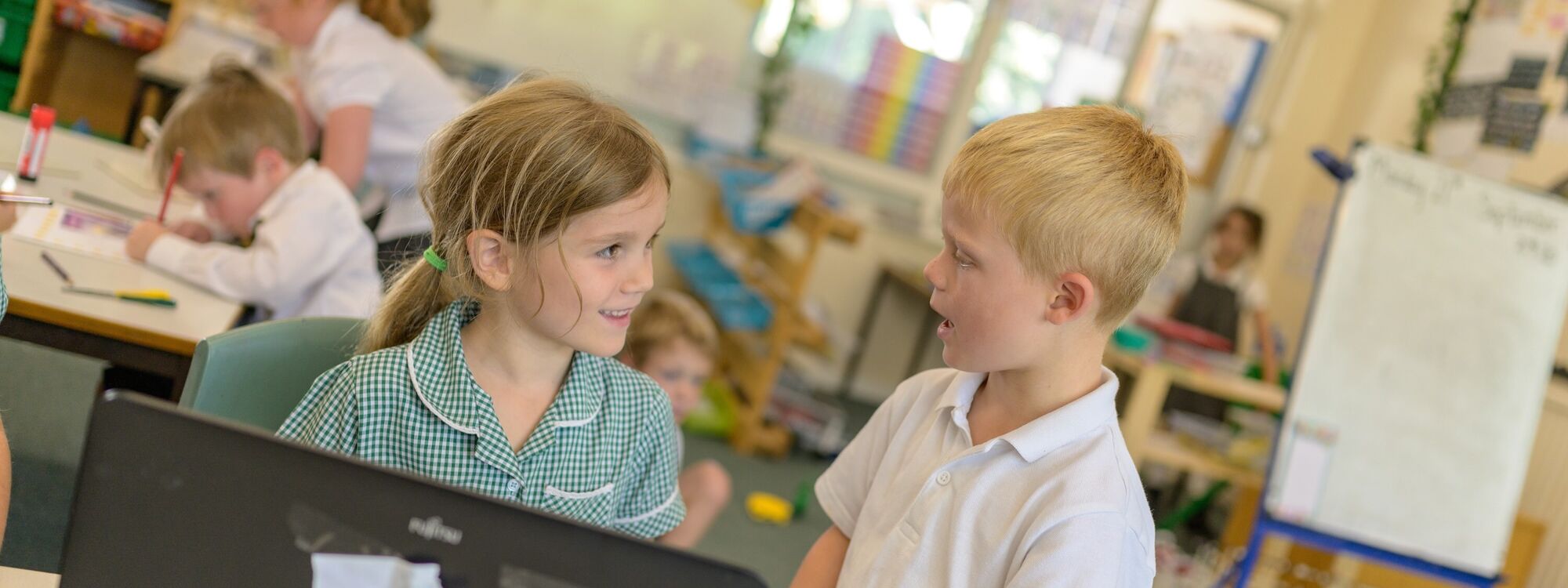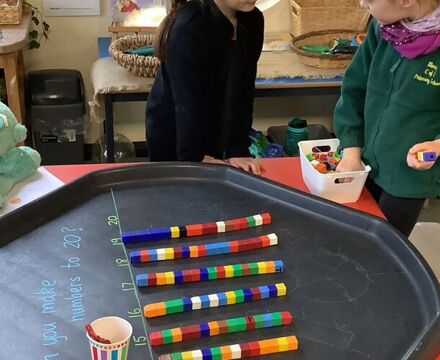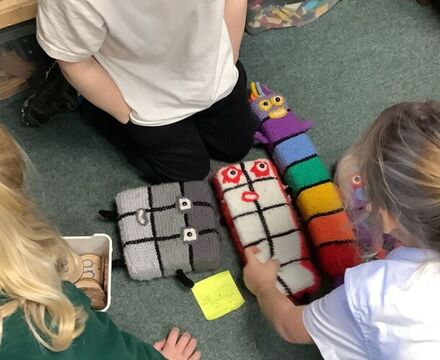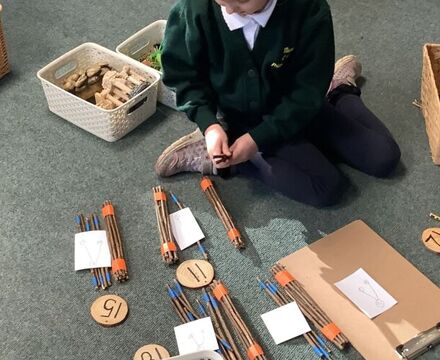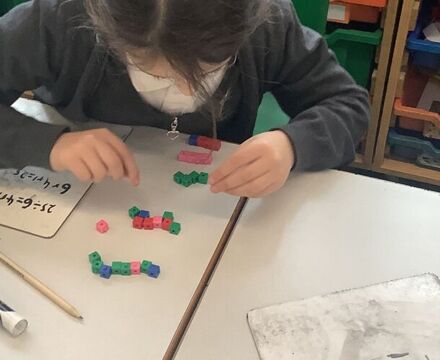Maths
Intent
At Meavy C of E Primary School, we believe that mathematics is a rich and creative subject in which all pupils can succeed and experience success. We intend on delivering a curriculum which:
- Allows children to be a part of creative and engaging lessons that will give them a range of opportunities to explore mathematics following a mastery curriculum approach adapted to suit the demands of mixed age classes.
- Gives each pupil a chance to believe in themselves as mathematicians and develop the power of resilience and perseverance when faced with mathematical challenges.
- Recognises that mathematics underpins much of our daily lives and therefore is of paramount importance in order that children aspire and become successful in the next stages of their learning.
- Engages all children and entitles them to the same quality of teaching and learning opportunities, striving to achieve their potential, as they belong to our school community.
- Makes rich connections across mathematical ideas to develop fluency, mathematical reasoning and competence in solving increasingly sophisticated problems.
- Provides opportunities for children to apply their mathematical knowledge to other subjects.
- Is in line with the expectations in the National Curriculum 2014
Implementation
Our mastery approach to the curriculum is designed to develop children's knowledge and understanding of mathematical concepts from the Early Years through to the end of Y6.
In Foundation stage, we follow the Statutory framework for Early Years Foundation Stage, including the Early Learning goals for Number and Number patterns and the additional requirements to explore shape and space and measures.
We follow the national curriculum and use White Rose Schemes of Work as a guide to support teachers with their planning and assessment. Teachers can decide to use as much of the White Rose materials as they think is helpful for the children in their class. By having these good quality resources available, teachers can spend more time thinking about the specific needs of groups and individuals within their class and how to address these.
• In Foundation stage and Key stage 1, we use the Mastering number programme to ensure all children have a strong grasp of key number facts within 20. In Foundation stage the Mastering number programme covers all of the learning in number so we will not use the White Rose scheme for number in Foundation stage.
• In Y3 and Y4 we will use a variety of approaches to ensure children know their times tables by the end of Y4. This includes daily speed recall and chanting of specific times tables, progressing in the order 2, 5, 3, 4, 6, 7, 8, 9, 11, 12. This is because there is a focus on facts that are already known from previous tables learning. This is augmented by every child in 2 upwards using Times Tables Rockstars to practice speedy recall using laptop or tablet. When there is a Y2/3 class, they will do both mastering number and times tables chanting.
The calculation policy is used within school to ensure a consistent approach to teaching the four operations over time.
Key vocabulary is introduced and revisited regularly to develop language acquisition, embedding as the topic progresses.
All lessons begin with a short retrieval practice to develop long-term memory.
Children are taught through clear modelling and have the opportunity to develop their knowledge and understanding of mathematical concepts. The mastery approach incorporates using objects, pictures, words and numbers to help children explore and demonstrate mathematical ideas, enrich their learning experience and deepen understanding at all levels.
- Children who have shown their understanding at a deep level within the unit, will have opportunities to apply these skills in a greater depth activity. This should be challenging and ensure that children are using more than just one skill to be able to answer the mathematical problems. Oracy, reasoning and problem solving are integral to the activities children are given to develop their mathematical thinking.
- Resources are readily available to assist securing a conceptual understanding of the different skills appropriate for each year group.
- Children are encouraged to explore, apply and evaluate their mathematical approach during investigations to develop a deeper understanding when solving different problems/puzzles.
- A love of maths is encouraged throughout school via links with other subjects, applying an ever growing range of skills with growing independence. This includes planning some lessons that approach maths from an unusual direction, such as through a story, or a practical problem.
- Children with additional needs are included in whole class lessons and teachers provide scaffolding and relevant support as necessary. For those children who are working outside of the year group curriculum, individual learning activities are provided to ensure their progress.
- Assessment at the start of each block or sequence informs the teaching and learning planned, and the time and attention given to different aspects of learning are adjusted accordingly.
- Feedback is given on children’s learning ideally directly to the child within a lesson. Formative assessment within every lesson helps teachers to identify the children who need more support to achieve the intended outcome and who are ready for greater stretch and challenge through planned questioning or additional activities.
- Children will complete an assessment activity at the start and end of each block of work. In order to support teacher judgments, children in Y2-Y6 will be assessed termly using current and reliable tests in line with the national curriculum for maths.
Impact
All children will have confidence to use their maths skills and knowledge effectively in varied situations.
Children demonstrate a quick recall of facts and procedures, including number bonds within 20 by the end of Y2 and the multiplication tables to 12x12 by the end of Y4.
They will have a secure knowledge of a range of calculation methods and strategies, and ability to use them accurately, and apply them appropriately in new situations.
Children can choose the method most appropriate to the situation and numbers involved in order to be efficient and accurate.
They show increasing resilience in being able to tackle increasingly complex problems.
They recognise patterns and relationships and make connections between different aspects of maths.
Children can express their ideas in maths using accurate vocabulary and full sentences. They will have the confidence to challenge and question ideas and to build on one another’s ideas.
